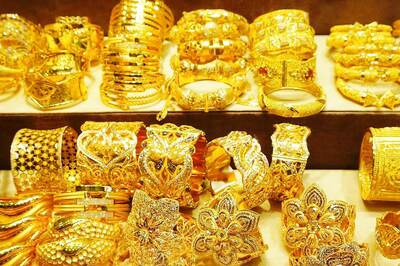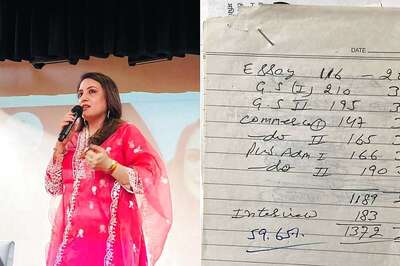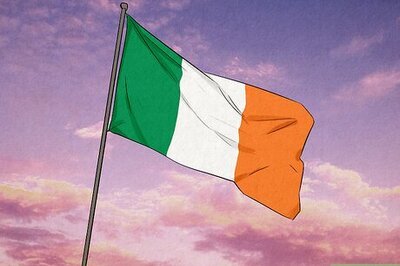
views
London: The British government joined efforts to block Rupert Murdoch's bid for broadcaster BSkyB on Tuesday, dashing his hopes of a rapid expansion in television as the scandal over phone-hacking by one of his newspapers widened.
By completing a phalanx of resistance to the global media magnate that includes all Britain's main parties, the move by Prime Minister David Cameron showed how far a man long feared and courted by left and right as a kingmaker may be hampered by outrage over the past week's allegations about his journalism.
The opposition Labour party, which has sought to capitalise on Conservative leader Cameron's personal ties to key figures in the affair, scheduled a non-binding vote in parliament for Wednesday. It will call on Murdoch to withdraw News Corp's $14-billion bid for the 61 percent it does not already own in BSkyB, Britain's main pay-TV group.
Barely an hour later, a spokesman for the government said it too would back the motion, setting a huge political, if not strictly legislative, hurdle for the takeover. Ministers had looked increasingly embarrassed by having already given their provisional blessing to Murdoch's offer, a fact that left the fate of the deal largely in the hands of independent officials.
Labour leader Ed Miliband said after calling the vote: "The best way of achieving our objective, which is to make sure that this bid cannot go ahead while the criminal investigation is going on, is for Mr Murdoch to withdraw the bid."
Developments since the scandal blew up had already meant the bid being referred to the competition watchdog, entailing a delay of possibly a year. But while that may have seemed a convenient respite for News Corp and the government to let the scandal die down, parliamentary unanimity against the takeover, even if not binding, may prove durable and hard to overcome.
SHARES DOWN
BSkyB shares closed 3.3 percent lower. News Corp shares lost gains they had made on news of a $5 billion share buyback that has taken advantage of a 14-percent slide in the stock price in New York since Thursday, when Murdoch announced the closure of top-selling tabloid the News of the World.
One London media analyst, speaking on condition of anonymity, said the companies' future was very hard to predict, given how far politicians had been forced to take positions in the light of popular anger: "The worm is turning," the analyst said of the stance Cameron's party was taking.
"It's serious in that it shows the political will at the moment. But the truth is things are changing by the hour in all of this so in a year's time, who knows? News Corp may not own any more newspapers in a year's time. So it's a tough one to call. The politicians are blowing in the wind."
Earlier on Tuesday, a senior policeman who investigated phone hacking by Murdoch's journalists said his own voicemails were probably spied on, but he denied that fear of embarrassing exposure intimidated him into dropping the inquiry.
Tapping popular anger at the global media magnate over allegations a tabloid newspaper spied on thousands of people, from the rich and powerful to vulnerable victims of crime, parliament summoned Murdoch and two top lieutenants to answer questions next Tuesday. It was not clear if they would attend.
The crossfire of mutual recrimination among politicians, press and police included an emotional charge from former prime minister Gordon Brown that Murdoch journalists hired "known criminals" to probe his private affairs at a time when they were running stories about his finances and his baby son's illness.
News International, News Corp's British newspaper arm, defended the story in its Sun daily, about the infant's cystic fibrosis, saying its source had been legitimate.
Police have been under fire for failing to follow up inquiries into phone hacking by the News of the World after the paper's royalty correspondent was jailed in 2007 for conspiring to listen in to the voicemails of court officials.
Serving and former senior officers faced hostile questions from a parliamentary committee about allegations police sold information to journalists and may have been bribed or pressured to prevent inquiries. Several tried to turn the tables, accusing News International of withholding evidence.




















Comments
0 comment